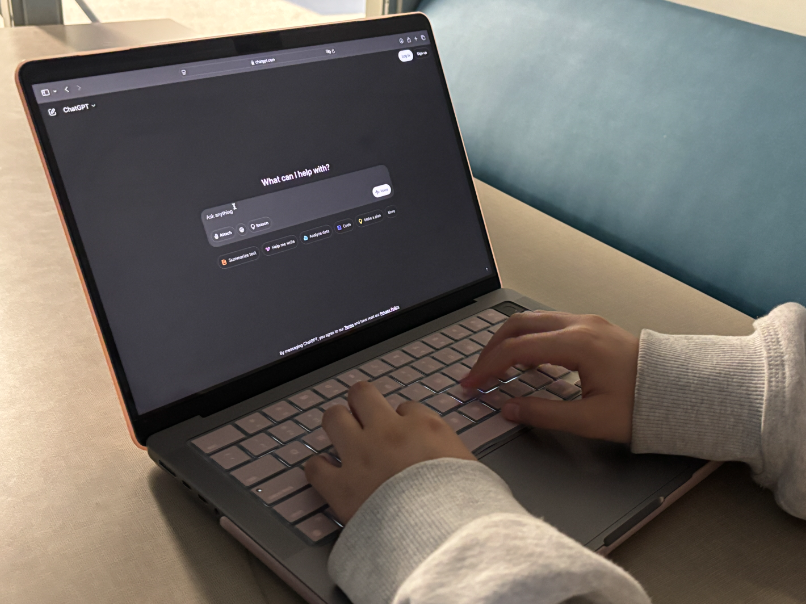
Starting this May, students will take most Advanced Placement (AP) exams through Bluebook — a digital testing application — and leave behind paper booklets. Most of the exams are experiencing full or partial changes, and this switch leaves students, teachers and graders across the nation with questions.
According to CollegeBoard, 28 of the 38 exams will shift toward a computer platform. Sixteen of those 28 are fully digital, and they are mostly subjects that have an extensive written portion, such as the history-based or English exams. Another 12 will be hybrid, which generally include Free Response Questions that require the test taker to show their work with pen and paper, such as in mathematics.
The remaining exams not given through Bluebook will vary, with eight of them staying unchanged this year. However, those eight, including AP Music Theory and language exams, have plans to switch in the future.
Switching to digitized exams helps the CollegeBoard administer and track exams more easily. According to a CollegeBoard article, the main reason that they chose to make the switch was the rise in cheating and academic dishonesty, since paper exams were more vulnerable to theft. For example, many Reddit users sold leaked questions last year or posted about group chats that exchanged those leaked questions.
The change to digital exams also requires fewer proctors and printed exams, which normally cost the CollegeBoard a lot of money and effort to keep track of all physical copies. “When they used to do it, it was boxes upon boxes upon boxes upon boxes. And they would hire lots of [temporary aids] to physically bring them to all the different table locations. And then by the end of the reading, they would still be getting them in the mail,” said math teacher Leah Higginbotham.
For many students, taking digital exams will not be a big adjustment, and some students even think aspects of the exam will be easier. Their experience depends on their writing preference, with some students preferring handwriting and others preferring to type. “I think [digital is] nice for essay questions, but I kind of like it when you can write on multiple choice,” said junior Jessica Zhang.
Digital exams are also easier to grade, since most graders will not need to travel anymore. Normally, the exam graders travel to a large convention every year, but grading can now be done virtually. Because of the virtual grading during the COVID-19 pandemic, graders already have an idea of what this will look like. For example, according to Higginbotham, the Free Response Question portion of the Calculus exams could be scanned and sent digitally. Although these portions will still be administered on paper, the students will see the questions displayed on a screen and have the response sheets on paper. These response sheets will be scanned to send to the graders.
The AP exams are only one example of national exams transitioning to a digital format. The American College Testing (ACT), one of the biggest standardized tests in the United States, is also paving a way to digitization. Since 2023, students have been given a choice between taking it digitally or on paper, but it is unclear whether or not they will remove paper tests anytime soon. According to the ACT, they are working on improving the digital formatting of the test and creating more flexibility regarding the science portion.
While the ACT still has paper options, the Scholastic Aptitude Test (SAT) became fully digital in the U.S. in March of 2024. While this change streamlined the testing and grading process, some technical difficulties came along with it. For example, 1,400 students in the East Bay could not take their exam last June because the Wi-Fi of the testing site was not working according to NBCBayArea. Additionally, many test takers had their SAT automatically submitted before the end of their testing time on March 8 according to the CollegeBoard.
The ACT provides devices for test takers and does not accept personal computers, but for the SAT and AP exams, students must bring their own device. This creates concerns over device accessibility and requirements. Some schools still do not provide school-issued devices to their students, and digital test taking could be subject to internet issues. “I think the chromebooks are going to hinder our AP testing abilities because ours are aging, and they don’t work very well, especially the keyboards,” said senior Griffin Boldt.
Despite these concerns, new alternatives to test taking and test security will continue to appear as the digital world grows and technology improves. “Companies are trying to change with the times, and so everybody’s got to change with the times,” said Higginbotham.
















![[DEBATES] Prestigious colleges: value or hype?](https://www.mvviewer.org/wp-content/uploads/2024/12/buildings-1200x654.png)
































![[OPINION] The dark origins of TikTok's looksmaxxing trend](https://www.mvviewer.org/wp-content/uploads/2024/02/Copy-of-Copy-of-Untitled-Design-1200x675.png)









